Organizing Committee
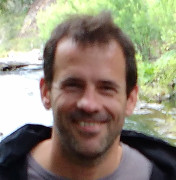 Esteban Mocskos is a CONICET researcher and professor at the Computer Science Department, FCEyN-UBA.
He published several papers in international journals, international and regional conferences in the area
of modelling and simulation including HPC. He was one of the key persons in the acquisition and
installation of the first cluster with Infiniband technology in Argentina at FCEyN-UBA.
Nowadays, he is the technical coordinator of the shared HPC facility at FCEN-UBA and of the largest HPC cluster in Argentina at the
CSC-CONICET.
He co-proposed the creation of the HPC symposium in Argentina, which rapidly became the reference conference in the HPC area.
He is part of the HPCLatAm initiative and member of the steering committee of the CARLA conference, which resulted from joining CLCAR and
HPCLatAm symposium.
Esteban Mocskos is a CONICET researcher and professor at the Computer Science Department, FCEyN-UBA.
He published several papers in international journals, international and regional conferences in the area
of modelling and simulation including HPC. He was one of the key persons in the acquisition and
installation of the first cluster with Infiniband technology in Argentina at FCEyN-UBA.
Nowadays, he is the technical coordinator of the shared HPC facility at FCEN-UBA and of the largest HPC cluster in Argentina at the
CSC-CONICET.
He co-proposed the creation of the HPC symposium in Argentina, which rapidly became the reference conference in the HPC area.
He is part of the HPCLatAm initiative and member of the steering committee of the CARLA conference, which resulted from joining CLCAR and
HPCLatAm symposium.
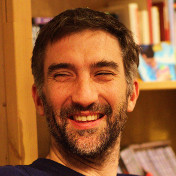 Alejandro Otero is a CONICET Researcher, leading the Renewable Energy Group at the CSC-CONICET. He specializes in numerical simulation techniques for solving PDE problems from fluid and solid mechanics, heat and mass transfer and multiphysics (fluid-structure interaction, thermomechanics, etc.) which typically appear in sciences and engineering. Lately he devoted to the implementation of those techniques in HPC environments. AO is particularly interested in their application to the simulation of wind power generation phenomena. AO is Mechanical Engineer (2002) and Doctor in Engineering (2008) from the Universidad de Buenos Aires (UBA). He is a Professor at UBA in Renewable Energies courses, has been Postdoctoral Research Scholar (2008) and Visiting Research Professor (2013) at Michigan Tech University, USA; and Scientific Collaborator at GFZ, Helmholtz-Zentrum Potsdam, Germany (2015). His research interests can be resumed in the following keywords: Continuum Mechanics: Solids & Fluids. Fluid-Structure Interaction. Partial Differential Equation Approximation Methods. Finite Element Method. Computational Mechanics. High Performance Computing. Renewable Energies. Wind Energy.
Alejandro Otero is a CONICET Researcher, leading the Renewable Energy Group at the CSC-CONICET. He specializes in numerical simulation techniques for solving PDE problems from fluid and solid mechanics, heat and mass transfer and multiphysics (fluid-structure interaction, thermomechanics, etc.) which typically appear in sciences and engineering. Lately he devoted to the implementation of those techniques in HPC environments. AO is particularly interested in their application to the simulation of wind power generation phenomena. AO is Mechanical Engineer (2002) and Doctor in Engineering (2008) from the Universidad de Buenos Aires (UBA). He is a Professor at UBA in Renewable Energies courses, has been Postdoctoral Research Scholar (2008) and Visiting Research Professor (2013) at Michigan Tech University, USA; and Scientific Collaborator at GFZ, Helmholtz-Zentrum Potsdam, Germany (2015). His research interests can be resumed in the following keywords: Continuum Mechanics: Solids & Fluids. Fluid-Structure Interaction. Partial Differential Equation Approximation Methods. Finite Element Method. Computational Mechanics. High Performance Computing. Renewable Energies. Wind Energy.
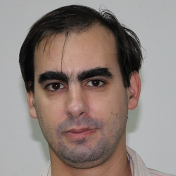 Alejandro Soba is a Physicist and a Ph.D in Physics from Facultad de Ciencias Exactas y Naturales, Universidad de Buenos Aires.
He is now a researcher at the National Atomic Energy Commission and at the Complex System Laboratory, Computer Science Department, Faculty of Exact and Natural Sciences, University of Buenos Aires, and Independent Career Investigator at the National Research Council of Argentina.
His present research interests include computational multiphysics in complex systems and nuclear reactor design, numerical resolution of partial differential equations and HPC.
Alejandro Soba is a Physicist and a Ph.D in Physics from Facultad de Ciencias Exactas y Naturales, Universidad de Buenos Aires.
He is now a researcher at the National Atomic Energy Commission and at the Complex System Laboratory, Computer Science Department, Faculty of Exact and Natural Sciences, University of Buenos Aires, and Independent Career Investigator at the National Research Council of Argentina.
His present research interests include computational multiphysics in complex systems and nuclear reactor design, numerical resolution of partial differential equations and HPC.
Staff
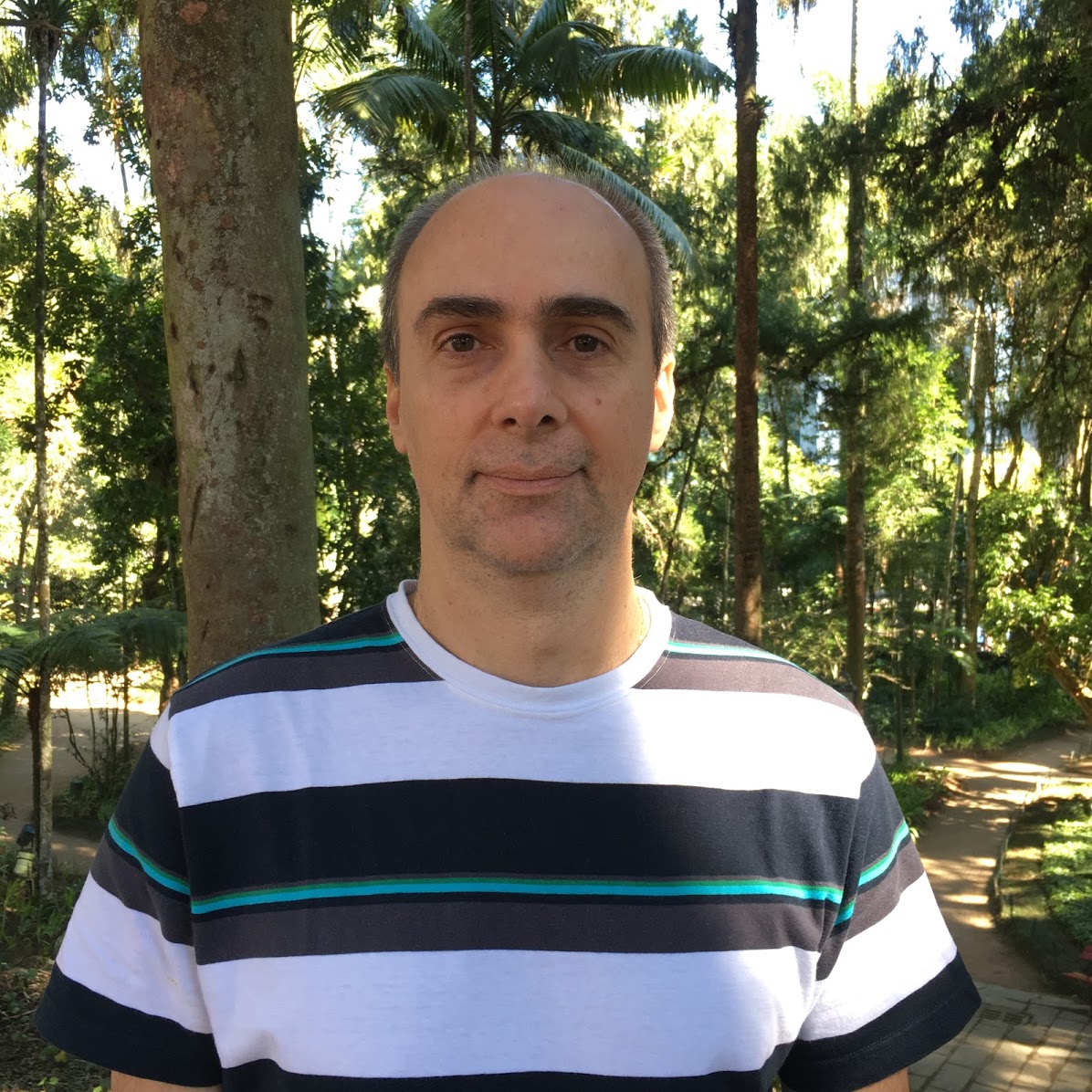 Albino A. Aveleda is researcher of the High Performance Computing Center. He got a B.Sc. Electronic Engineering Degree at UFRJ (Federal University of Rio de Janeiro, Brazil) and M.Sc. Civil Engineering and D.Sc.degrees at COPPE/UFRJ. He got some Information Technology (IT) certifications as AWS (Amazon Web Services) Certified Solutions Architect - Associate Level, Cisco Certified Network Associate Security (CCNA Security), Cisco Certified Network Associate (CCNA), Brocade Certified vRouter Engineer, Red Hat Certified System Administrator - Red Hat Enterprise Linux 6 (RHCSA). Participation in over 50 industry projects, public and private. Organizer of National and International conferences, training short courses, SGI instructor in Brazil and Cisco instructor at UFRJ.
Albino A. Aveleda is researcher of the High Performance Computing Center. He got a B.Sc. Electronic Engineering Degree at UFRJ (Federal University of Rio de Janeiro, Brazil) and M.Sc. Civil Engineering and D.Sc.degrees at COPPE/UFRJ. He got some Information Technology (IT) certifications as AWS (Amazon Web Services) Certified Solutions Architect - Associate Level, Cisco Certified Network Associate Security (CCNA Security), Cisco Certified Network Associate (CCNA), Brocade Certified vRouter Engineer, Red Hat Certified System Administrator - Red Hat Enterprise Linux 6 (RHCSA). Participation in over 50 industry projects, public and private. Organizer of National and International conferences, training short courses, SGI instructor in Brazil and Cisco instructor at UFRJ.
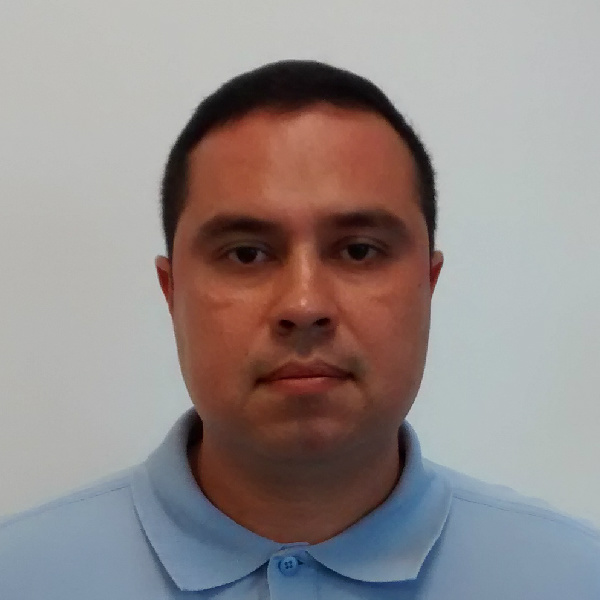 Gilberto Diaz is a System Engineer and Master degree in Computing from Los Andes University in Mérida - Venezuela. Was a teacher in Faculty of Engineering and researcher in the Supercomputing Center at the same University.
Currently is the CTO and researcher in the Supercomputing Center at Universidad Industrial de Santander in Bucaramanga - Colombia. His present research interests include parallel file systems for IO intensive applications.
Gilberto Diaz is a System Engineer and Master degree in Computing from Los Andes University in Mérida - Venezuela. Was a teacher in Faculty of Engineering and researcher in the Supercomputing Center at the same University.
Currently is the CTO and researcher in the Supercomputing Center at Universidad Industrial de Santander in Bucaramanga - Colombia. His present research interests include parallel file systems for IO intensive applications.
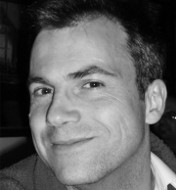 Leo González is Mechanical Engineer from the ICAI-Universidad Pontificia Comillas and Physics Licenciate from the Universidad Autónoma de Madrid. He completed his academic background in the University Politécnica de Madrid (UPM), doing his PhD on Computational Fluid Dynamics. He had different post-doctoral internships in universities such as the Imperial College London UK, or the Universidad de Buenos Aires Argentina, and Airbus Group Innovation Bristol UK.
Currently, he works as Research Professor in the Fluid Mechanics and Propulsion Department of the Aeronautics School of the UPM and he also belongs to the Towing Tank Research Group of the Naval Engineering School of the UPM. He teaches Fluid Mechanics and Numerical Methods. His research is based on Computational Fluid Dynamics, in different disciplines such as: fluid stability, fluid-structure interaction and smoothed particle hydrodynamics. He has more than 30 journal papers and more than 100 conference contributions. He has participated in more than ten European Projects, currently he is the UPM leader project of the IMAGE EU Project.
Leo González is Mechanical Engineer from the ICAI-Universidad Pontificia Comillas and Physics Licenciate from the Universidad Autónoma de Madrid. He completed his academic background in the University Politécnica de Madrid (UPM), doing his PhD on Computational Fluid Dynamics. He had different post-doctoral internships in universities such as the Imperial College London UK, or the Universidad de Buenos Aires Argentina, and Airbus Group Innovation Bristol UK.
Currently, he works as Research Professor in the Fluid Mechanics and Propulsion Department of the Aeronautics School of the UPM and he also belongs to the Towing Tank Research Group of the Naval Engineering School of the UPM. He teaches Fluid Mechanics and Numerical Methods. His research is based on Computational Fluid Dynamics, in different disciplines such as: fluid stability, fluid-structure interaction and smoothed particle hydrodynamics. He has more than 30 journal papers and more than 100 conference contributions. He has participated in more than ten European Projects, currently he is the UPM leader project of the IMAGE EU Project.
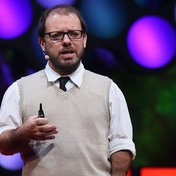 Mariano Vazquez is Research Group Leader, co-leading with Guillaume Houzeaux, the Alya Project. Alya is the BSC in-house multi-physics HPC-based simulation code, with more than 40 developers from different fields: fluid and solid mechanics, combustion, biomechanics, electromagnetism, nuclear energy, environment, etc. MV is Physics Licentiate from the Universidad de Buenos Aires, Argentina and Doctor in Physics (in Computational Mechanics) from the Universitat Politècnica de Catalunya (Spain). He has spent three years as a Postdoctoral researcher in France in Dassault Aviation (two years as Marie-Curie fellow) and in INRIA-Sophia Antipolis (one year). He has been technical consultant in a grid computing company, GridSystems (Spain), and Lecturer in Computational Fluid Dynamics in the University of Girona (Spain). His main research lines can be resumed in the following keywords: Computational Mechanics, Computational Fluid Dynamics, Compressible Flows, Biomechanics and Parallelization. MV is researcher of the Spanish National Scientific Council CSIC and Applications Manager of the European Center of Excellence in Computational Biomedicine.
Mariano Vazquez is Research Group Leader, co-leading with Guillaume Houzeaux, the Alya Project. Alya is the BSC in-house multi-physics HPC-based simulation code, with more than 40 developers from different fields: fluid and solid mechanics, combustion, biomechanics, electromagnetism, nuclear energy, environment, etc. MV is Physics Licentiate from the Universidad de Buenos Aires, Argentina and Doctor in Physics (in Computational Mechanics) from the Universitat Politècnica de Catalunya (Spain). He has spent three years as a Postdoctoral researcher in France in Dassault Aviation (two years as Marie-Curie fellow) and in INRIA-Sophia Antipolis (one year). He has been technical consultant in a grid computing company, GridSystems (Spain), and Lecturer in Computational Fluid Dynamics in the University of Girona (Spain). His main research lines can be resumed in the following keywords: Computational Mechanics, Computational Fluid Dynamics, Compressible Flows, Biomechanics and Parallelization. MV is researcher of the Spanish National Scientific Council CSIC and Applications Manager of the European Center of Excellence in Computational Biomedicine.
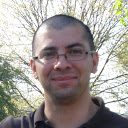 Esteban Meneses leads the Advanced Computing Laboratory at the Costa Rica National High Technology Center. He also holds a partial appointment at the School of Computing in the Costa Rica Institute of Technology, where he teaches the parallel computing class. His research interests include fault tolerance and programming models for high performance computing. He obtained his PhD in Computer Science from the University of Illinois at Urbana-Champaign.
Esteban Meneses leads the Advanced Computing Laboratory at the Costa Rica National High Technology Center. He also holds a partial appointment at the School of Computing in the Costa Rica Institute of Technology, where he teaches the parallel computing class. His research interests include fault tolerance and programming models for high performance computing. He obtained his PhD in Computer Science from the University of Illinois at Urbana-Champaign.
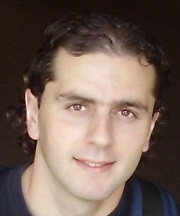 Sergio Nesmachnow, Full Professor at Facultad de Ingeniería, Universidad de la República, Uruguay and Researcher at ANII and PEDECIBA, Uruguay. His main research areas are high performance scientific computing and metaheuristics for solving real world problems, having published more than 200 journal articles and international conference papers in those areas. Currently, he serves as Director of The Uruguayan Scientific High Performance Computing Initiative, Editor in Chief of International Journal of Metaheuristics (Inderscience Publishers, Switzerland), and he participates as Guest Editor, reviewer and Scientific Committee member of many important journals and international conferences.
Sergio Nesmachnow, Full Professor at Facultad de Ingeniería, Universidad de la República, Uruguay and Researcher at ANII and PEDECIBA, Uruguay. His main research areas are high performance scientific computing and metaheuristics for solving real world problems, having published more than 200 journal articles and international conference papers in those areas. Currently, he serves as Director of The Uruguayan Scientific High Performance Computing Initiative, Editor in Chief of International Journal of Metaheuristics (Inderscience Publishers, Switzerland), and he participates as Guest Editor, reviewer and Scientific Committee member of many important journals and international conferences.
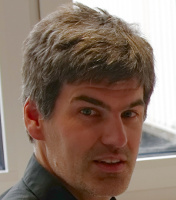 Markus Rampp is head of the high-performance computing (HPC) applications division of the Max Planck Computing and Data Facility (MPCDF). He received a diploma in theoretical physics (1997) and a PhD in Natural Sciences (research area: computational astrophysics), both from the Technical University of Munich. After working as a pre and postdoctoral researcher in the supernova modelling group at the Max Planck Institute for Astrophysics (1997-2003) he joined the RZG (predecessor organization of the MPCDF), where he has been leading software development and support for computational biology applications, scientific visualization (since 2008) and HPC applications (since 2010).
Markus Rampp is head of the high-performance computing (HPC) applications division of the Max Planck Computing and Data Facility (MPCDF). He received a diploma in theoretical physics (1997) and a PhD in Natural Sciences (research area: computational astrophysics), both from the Technical University of Munich. After working as a pre and postdoctoral researcher in the supernova modelling group at the Max Planck Institute for Astrophysics (1997-2003) he joined the RZG (predecessor organization of the MPCDF), where he has been leading software development and support for computational biology applications, scientific visualization (since 2008) and HPC applications (since 2010).
Klaus Reuter is a scientific application developer at the HPC applications group of the Max Planck Computing and Data Facility (MPCDF).
He is a physicist by training and received a PhD in Natural Sciences (2010, research area: computational plasma physics) from the University of Münster.
Klaus joined the RZG (predecessor organization of the MPCDF) in 2010 and has been developing, optimizing, and supporting HPC applications in the fields of materials science, plasma physics, and biophysics on state-of-the art CPU and GPU platforms since then.
Moreover, he has conducted scientific visualization projects for materials science, astrophysics and biology, and maintains the software stack of the remote visualization facilities on the supercomputers at the MPCDF.
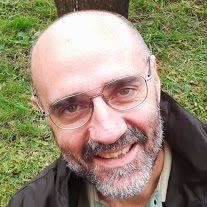 Mario A. Storti is a senior scientist at CIMEC (Centro de Investigación de Métodos Computacionales). He received his degree in Physics from Instituto Balseiro, UN Cuyo, Bariloche (1983) and in 1990 is Ph.D. at UN Litoral, Santa Fe, where he is currently professor in postgraduate and undergraduate programs. He received the 2012 Award for Senior Scientists from the Argentine Association for Computational Mechanics (AMCA). He has published 80+ articles in indexed journals, has been advisor of 5 PhD thesis, organized international conferences, and edited 6 volumes of the Mecánica Computacional series (AMCA).
Mario A. Storti is a senior scientist at CIMEC (Centro de Investigación de Métodos Computacionales). He received his degree in Physics from Instituto Balseiro, UN Cuyo, Bariloche (1983) and in 1990 is Ph.D. at UN Litoral, Santa Fe, where he is currently professor in postgraduate and undergraduate programs. He received the 2012 Award for Senior Scientists from the Argentine Association for Computational Mechanics (AMCA). He has published 80+ articles in indexed journals, has been advisor of 5 PhD thesis, organized international conferences, and edited 6 volumes of the Mecánica Computacional series (AMCA).
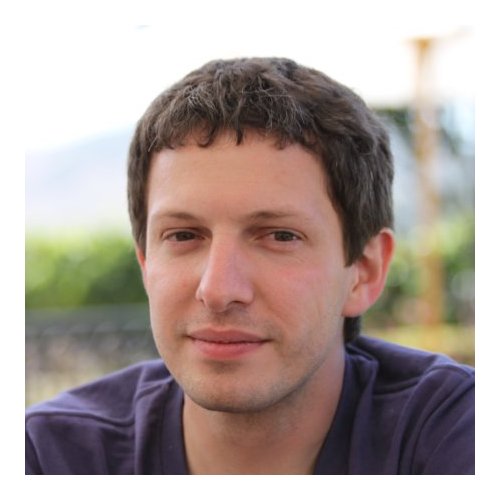 David González Márquez is a PhD candidate at the Computer Science Department of the University of Buenos Aires.
David González Márquez is a PhD candidate at the Computer Science Department of the University of Buenos Aires.
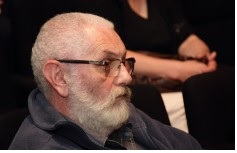 Roberto Bevilacqua is Computer Scientist, (FCEN-UBA, 1975) and degree in Computer Science
(FCEN-UBA, 1985). Since 1977, works at the National Atomic Energy Commission, where he was
head of the Department of Computation of High Performance In the Managament of Technology
of Information and Communications (2011-2017), currently Technology Advisor of the DCAP,
working in topics of High Performance Computing (HPC), Cluster Storage and Low Latency
Networks. It was in charge of one of the two systems of High Performance Computing for the
greater provision of the Argentina according to the 50 LARTop of the HPCLatAm.
Roberto Bevilacqua is Computer Scientist, (FCEN-UBA, 1975) and degree in Computer Science
(FCEN-UBA, 1985). Since 1977, works at the National Atomic Energy Commission, where he was
head of the Department of Computation of High Performance In the Managament of Technology
of Information and Communications (2011-2017), currently Technology Advisor of the DCAP,
working in topics of High Performance Computing (HPC), Cluster Storage and Low Latency
Networks. It was in charge of one of the two systems of High Performance Computing for the
greater provision of the Argentina according to the 50 LARTop of the HPCLatAm.
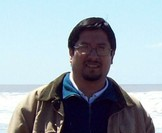 Gastón Aguilera is Computational Analist of the University of Buenos Aires University.
He is teacher in Operanting Systems Area and a member of the Center (CIDI) for research and development in computer science of the University of San Martin. He is in charge of the Department of High Performance Computing in the National Atomic Energy Commission (CNEA). Since 1997 he works on issues of parallel programming, management of HPC environments and support in the use and adaptation of simulation software on HPC to CNEA’s researchers. He is carrying out his Bachelor thesis in Radial Basis Functions applied to Thin Cell Electrodeposition.
Gastón Aguilera is Computational Analist of the University of Buenos Aires University.
He is teacher in Operanting Systems Area and a member of the Center (CIDI) for research and development in computer science of the University of San Martin. He is in charge of the Department of High Performance Computing in the National Atomic Energy Commission (CNEA). Since 1997 he works on issues of parallel programming, management of HPC environments and support in the use and adaptation of simulation software on HPC to CNEA’s researchers. He is carrying out his Bachelor thesis in Radial Basis Functions applied to Thin Cell Electrodeposition.
DCAP-CNEA staff responsible for the Module 'CLUSTERs: Architecture and Evolution' is composed by: Leonardo Dominguez, Agustín Nieto, Roque Iozzo and Bernabé Panarello.